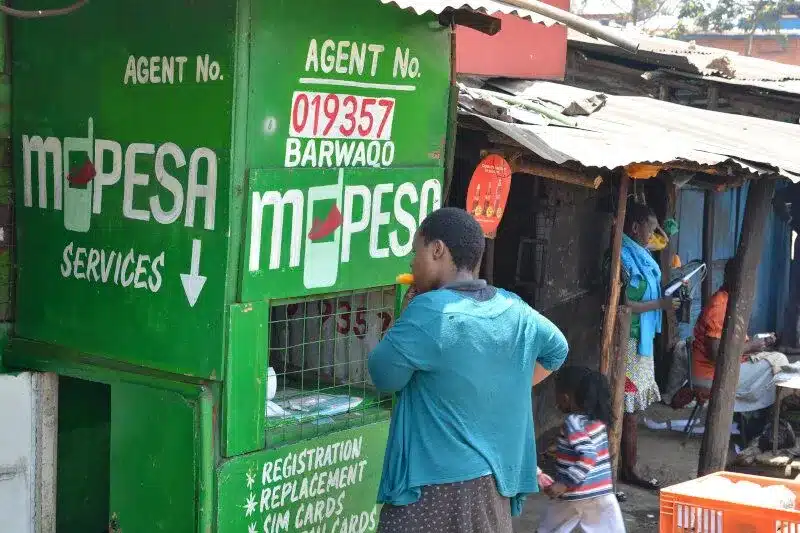Sveiki,
Victoria from Techpoint here,
Here’s what I’ve got for you today:
- SA regulator calls out WhatsApp for violating data rules
- Are hashtags dead in 2025?
- POS agents: Access, but at a cost
South African regulator calls out WhatsApp for violating data rules

The Information Regulator has called out WhatsApp for breaking several rules under South Africa’s Protection of Personal Information Act (POPIA). In September 2024, they served the messaging giant an enforcement notice, which has only now been made public. The notice gave WhatsApp 60 days to fix the issues and send proof that they’ve done so or face a fine of up to R10 million, jail time, or both.
So, what exactly did WhatsApp do wrong? Per the Regulator, the platform violated seven key sections of POPIA, including ones about consent, purpose for collecting data, and keeping information secure. A major issue is that WhatsApp’s privacy policy for South Africa doesn’t match the more detailed version they offer users in Europe, something the watchdog isn’t happy about.
One big problem is how WhatsApp handles consent. Per the regulator, the platform forces users to agree to certain terms without giving them a real choice, which POPIA doesn’t allow. In South Africa, for consent to be valid, it needs to be fre.ely given, specific, and well-informed. WhatsApp’s current setup doesn’t meet that standard.
The Regulator also flagged WhatsApp for not clearly stating why it collects certain types of data, like device and usage info. Worse still, the data collected is being shared with other companies, including Meta and third parties, for reasons that don’t line up with the original purpose of collection — another red flag under POPIA.
When it comes to security, WhatsApp hasn’t provided solid proof that it has proper systems in place to protect people’s information. The company basically told the Regulator to just trust them, but the law requires more than that. They’ve been told to put proper technical and organisational safeguards in writing and show them.
Lastly, the Regulator wants WhatsApp to do a full personal information impact assessment, communicate better with users in simple language, and update their FAQs to reflect more transparency. WhatsApp had until November 10, 2024, to sort all of this out. And now? We’re still waiting to hear whether they actually complied.

Victoria Fakiya – Senior Writer
Techpoint Digest
Stop struggling to find your tech career path
Discover in-demand tech skills and build a standout portfolio in this FREE 5-day email course
Are hashtags dead in 2025?

Remember when hashtags were the holy grail of online visibility? Yesterday, I mentioned kicking off a 90-day writing challenge in 2019. Well, I vividly recall using hashtags on X (then Twitter) and Instagram to push out my work. It felt like the magic formula: tag it right, and you’d get seen. Fast forward to 2025, though, and it’s safe to ask: are hashtags still alive?
Well, they’ve lost their shine. Once upon a time, #ThrowbackThursday, #EndSARS, and #WCW weren’t just for fun; they built entire movements and online tribes. These tags helped people discover content, start conversations, and even change the world. But in today’s digital world, the algorithms call the shots, not your tags.
Platforms like TikTok, which now rule the content space, especially among Gen Zs in Africa, don’t care much for hashtags. What matters more is how you behave. In other words, what you like, how long you linger on a video, and what you comment on. Instagram and X are also leaning hard into this model. Basically, it’s no longer about what you post but how the platform thinks people will react to it.
Still, hashtags aren’t completely useless. As influencer Nathan Olori puts it, they’re still a handy tool for new creators trying to get noticed. You won’t see your favourite celebs using them much because they already have the clout. But if you’re just starting or trying to build within a niche, hashtags can still help; just don’t expect miracles.
In places like Nigeria, Kenya, and South Africa, hashtags still pop off in specific circles, like community threads (#TechpointDigest), events (LagosStartupExpo2.0), or activism (#JusticeforDeborah). But even Meta admits hashtags are now a “secondary signal. In short, nice to have but not essential.
So what’s taking over? If hashtags are fading out, what’s helping creators grow and get noticed these days? Check out Delight’s latest on Techpoint Africa to find out what’s hot and what’s not in the 2025 creator world.
POS agents: Access, but at a cost

Last year, Businessfront CEO Múyìwá Mátùlúkò shared a tweet about how he opened a bank ac0unt and got a debit card in just ten minutes, not inside a bank, but right by the roadside. It was all thanks to one of Nigeria’s 1.8 million+ POS agents scattered across the country.
Turns out, he’s not alone. Per a recent report by Intelpoint and Finance in Africa, a whopping 95.4% of Nigerians rely on these POS agents for basic financial services. For many, especially in rural areas, these agents are the only “bank” they know — no long queues, no bank buildings, just someone with a device and a plastic table.
But convenience comes at a price. Withdrawing ₦5,000 from a POS agent often comes with a ₦100 to ₦150 fee. Need ₦20,000? That fee could go up to ₦400 or even more. And in remote areas with fewer agents, the charges are usually higher because demand outweighs supply.
Over the past couple of years, Nigerians have dealt with a lot: cash shortages, the now-suspended cybersecurity levy, and that ₦50 charge for money transfers over ₦10,000. All of this has pushed POS withdrawal fees up, sparking plenty of outrage online. No surprise that 58.6% of people now say the biggest issue with agency banking is the high cost.
These agents were meant to bridge the gap for the financially excluded, but for many, they’ve become an extra burden. People still mainly use POS agents for withdrawals, but a good number also use them for deposits (22.8%) and transfers (20%). Around 6% have even opened bank accounts through them.
Here’s something unexpected: even in areas with nearby banks, 95.9% still use POS agents, compared to 89.8% in more remote places. One reason? ATMs are often unreliable or out of cash. So even when banks are within reach, POS agents are still the go-to option for quick and dependable service.
In case you missed it
- MTN leadership reshuffle hits Rwanda and South Sudan
What I’m watching
- How we found out evolution is true: John van Wyhe at TEDxNTU
- The Absurd Search For Dark Matter
Opportunities
- Want to exhibit or attend the Lagos Startup Expo in June? Visit this website here.
- BBC is looking for a Journalist with a focus on Africa. Apply here.
- Kuda is looking for technology interns. Apply here.
- TapTap Send is hiring an Anglo Africa Partner Operations Manager. Apply here.
- Binance is hiring a Local Growth Manager in Africa. Apply here.
- Pulse Nigeria is looking for a Graphics Designer. Apply here.
- Uber has opened applications for its 2025 Account Management internships. Apply here.
- Carry1st is looking for a Community Program Manager, North Africa. Apply here.
- Building a startup can feel isolating, but with Equity Merchants CommunityConnect, you can network with fellow founders, experts, and investors, gaining valuable insights and exclusive resources to help you grow your business. Click here to join.
- Help us make Techpoint better for you! Your feedback shapes what comes next (your responses may potentially save my job. A bit dramatic, but still). It will only take 30 seconds to tell us what works and what doesn’t. Fill it here.
- To pitch your startup or product to a live audience, check out this link.
- Have any fresh products you’d like us to start selling? Check out this link here.
- Flutterwave is hiring to fill in several positions. Apply here.
- Paystack is hiring for several roles. Apply here.
- Moniepoint is hiring for several roles. Apply here.
- Follow Techpoint Africa’s WhatsApp channel to stay on top of the latest trends and news in the African tech space here.
Have a fun weekend!
Victoria Fakiya for Techpoint Africa.









